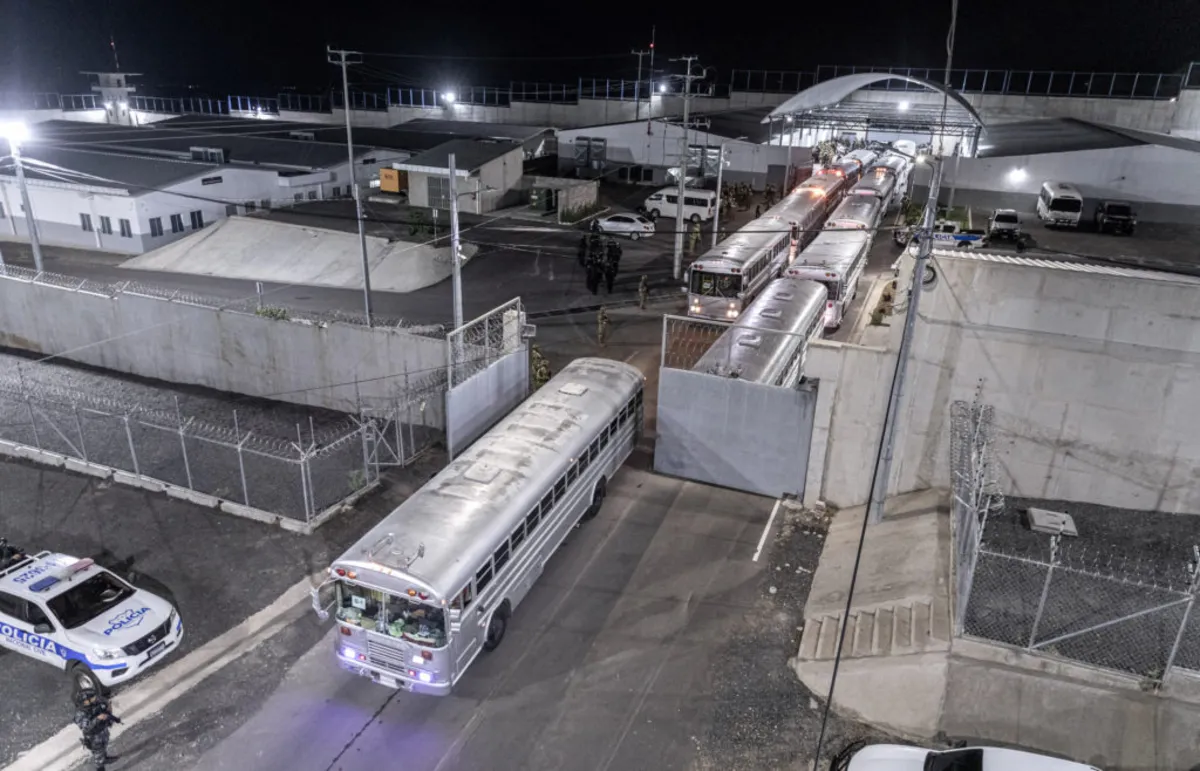
In a significant turn of events, the Trump administration has admitted to mistakenly deporting a Maryland man with protected legal status, Kilmar Armando Abrego Garcia, to a notorious prison in El Salvador. This incident raises serious questions about the handling of immigration cases under the current regime, particularly regarding the rights of individuals with legal protections.
Abrego Garcia, 29, was deported last month after being arrested in Baltimore on March 12. He was picking up his 5-year-old son, who has autism and other disabilities, after completing a shift as a sheet metal apprentice. His lawyers allege that the deportation was a result of an “administrative error” on the part of U.S. Immigration and Customs Enforcement (ICE).
Following his deportation, Abrego Garcia was sent to the Terrorism Confinement Center (CECOT) in El Salvador, a facility notorious for its harsh conditions and alleged human rights abuses. His wife later identified him in images from the prison, recognizing him by his distinctive tattoos and scars.
Despite the government's acknowledgment of the mistake, officials have argued against returning Abrego Garcia to the U.S., citing alleged gang ties. The administration claims he poses a danger to the community due to supposed connections with the MS-13 gang. However, Abrego Garcia’s lawyers vehemently deny these allegations, stating that the government has failed to provide any evidence linking him to gang activity.
According to the complaint filed by his attorneys, Abrego Garcia fled gang violence in El Salvador in 2011, seeking refuge in the U.S. to join his brother, a U.S. citizen. The complaint details a history of being stalked and threatened by gang members in his home country, suggesting that his deportation contradicts the very protections he sought when arriving in the United States.
Abrego Garcia's legal troubles began in 2019 when he was arrested outside a Home Depot in Maryland while looking for work. Local police questioned him about gang membership, which led to his detention by ICE. His lawyers argue that local authorities misidentified him based on dubious evidence, such as wearing a Chicago Bulls hat and a hoodie, and an unsubstantiated claim from a confidential informant.
In response to these allegations, Abrego Garcia filed for asylum, providing extensive evidence to support his case and contest the gang membership claims. Although an immigration judge denied his asylum request in October 2019, he was granted protection from deportation to El Salvador, allowing him to remain in the U.S.
Following the uproar from immigration advocates, Vice President JD Vance and other officials reiterated the claims of Abrego Garcia’s gang ties. In an official court filing, ICE described the deportation as an "oversight" but maintained that it was executed in good faith based on the presumption of gang affiliation.
ICE’s acting field office director, Robert Cerna, stated that the deportation occurred despite the agency being aware of Abrego Garcia’s protected status. The administration has argued against his return, asserting that the court lacks jurisdiction since he is no longer in U.S. custody.
Abrego Garcia’s lawyer, Simon Sandoval-Moshenberg, expressed frustration at the government’s actions, noting that officials had multiple opportunities to address his case through legal channels but chose to deport him instead. “They just put him on an airplane,” he stated, highlighting the lack of due process in the situation.
As this case unfolds, it serves as a stark reminder of the complexities surrounding immigration policies and the potential consequences for individuals seeking safety and stability in the U.S. The ongoing debate over mass deportations, particularly under the Trump administration, continues to ignite passionate discussions about justice and human rights.
For more information and updates on immigration law and the rights of individuals with protected status, stay tuned to our coverage.